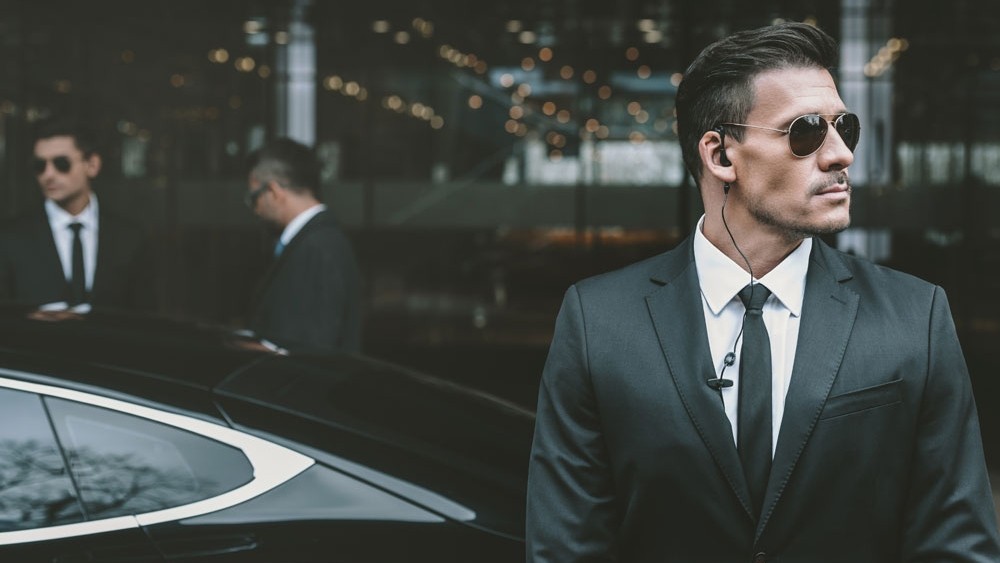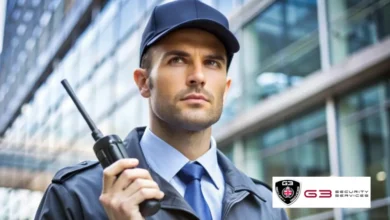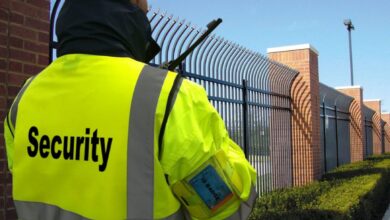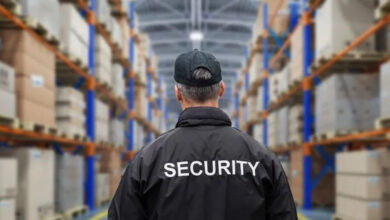
Introduction
The United Kingdom is home to one of the most established and strictly regulated private security sectors in the world. From retail stores and corporate offices to major public events and private estates, security guard services cover a wide range of responsibilities. Among these, close protection security—often referred to as bodyguard services—stands as one of the most specialised and demanding areas. Unlike traditional guarding, which focuses on safeguarding property, assets, or general crowds, close protection is centred entirely on protecting individuals. It is a discipline that requires extensive training, constant vigilance, and the ability to balance safety with discretion.
Close protection is not simply about physical strength or intimidation. It is about creating a protective bubble around a client, known as the principal, and ensuring their safety without interfering with their lifestyle. Whether escorting a high-profile business executive to a meeting, safeguarding a celebrity during a public event, or protecting a family at their private residence, close protection officers must provide reassurance, strategic foresight, and immediate response to potential threats.
Understanding Close Protection Security
Close protection refers to the practice of providing specialised, personal security to individuals or groups who may be exposed to elevated risks. These risks may arise due to wealth, fame, political influence, or even personal circumstances such as being involved in high-profile legal cases. Unlike general security services, which primarily focus on maintaining order and preventing crime on a property, close protection takes a far more proactive and preventive approach. The purpose is not only to respond to danger but to anticipate it and mitigate risks before they develop.
Close protection can involve a range of services. For instance, clients may require protection while travelling, which includes secure journey planning, safe vehicle selection, and the presence of security escorts. At home, they may need residential protection, with officers securing the perimeter, monitoring CCTV, and restricting unauthorised access. During public appearances, officers may accompany the principal closely, ensuring they can interact freely with the public without being exposed to unwanted attention or physical threats. Each assignment is unique and tailored to the specific risks associated with the client’s life and environment.
The Role of Close Protection Officers
Close protection officers, commonly called CPOs, are the professionals tasked with delivering this service. In the UK, their work is regulated by the Security Industry Authority (SIA), and they must hold a valid licence in order to operate. The role of a CPO is far more complex than many people imagine. While popular culture often portrays bodyguards as large, intimidating figures who simply stand near celebrities, the reality is that modern close protection requires intelligence, adaptability, and subtlety.
A close protection officer’s primary duty is, of course, to ensure the safety of the client. However, achieving this involves far more than simply being physically present. CPOs must be highly observant, constantly assessing the environment for potential risks. They may need to identify unusual behaviour in a crowd, monitor traffic patterns to avoid dangerous routes, or discreetly detect whether someone is following their client. They are also responsible for detailed planning, such as conducting advance visits to venues, coordinating with event organisers, and preparing contingency plans in case of emergencies.
Equally important is the ability of the officer to maintain professionalism and discretion. Many clients, especially celebrities, executives, and high-net-worth individuals, prefer to live as normally as possible without drawing unnecessary attention to their security arrangements. This often requires officers to operate in the background, blending into the client’s environment while maintaining constant readiness to act. In some cases, officers even adopt roles such as personal assistants or drivers, allowing them to remain close without creating a visible barrier between the client and the outside world.
Regulation and Training in the UK
The UK’s close protection industry is governed by strict regulations to ensure high standards of professionalism. The Security Industry Authority (SIA) is the body responsible for overseeing this sector. In order to work as a close protection officer, an individual must complete an SIA-approved training course and obtain a close protection licence.
The training itself is comprehensive, covering a wide range of essential skills. Officers are trained in conflict management, surveillance techniques, operational planning, and advanced physical intervention methods. They also receive training in first aid, since medical emergencies are just as likely to occur as security threats. Beyond physical and technical skills, emphasis is placed on legal knowledge, ethical conduct, and the responsibilities that come with protecting another person’s life.
The licensing process involves thorough background checks to ensure that only trustworthy individuals are permitted to work in such sensitive roles. Officers must also maintain their licence by adhering to professional standards and renewing it at required intervals. This system of regulation is vital because it reassures clients that the person responsible for their safety has been properly vetted and trained to a high standard.
Who Requires Close Protection in the UK?
Close protection is often associated with celebrities and high-profile figures, but the range of clients who may need such services is far broader. Wealthy individuals, for example, are often at risk of robbery, extortion, or kidnapping. Politicians and diplomats may face threats from political opponents, activists, or extremist groups. Corporate executives working on sensitive deals or mergers may also become targets for protest or even corporate espionage.
Celebrities, particularly those in entertainment or sports, are frequent clients of close protection services. Their constant public exposure and the attention they attract from fans and media alike make them vulnerable to stalking, harassment, and crowd-related dangers. In addition, individuals involved in high-profile legal proceedings—whether as witnesses or professionals handling sensitive cases—may also require protection due to potential retaliation.
Even visiting dignitaries or international business leaders travelling to the UK often rely on local close protection officers who understand the cultural, legal, and logistical environment. Each case presents its own risks, and the level of protection provided is tailored accordingly, ranging from a single discreet officer to a full team of specialists working in shifts.
Benefits of Close Protection Security
The most obvious benefit of close protection is the immediate safety it provides. Having a trained professional nearby significantly reduces the risk of physical harm, whether from violent crime, kidnapping attempts, or even aggressive harassment. However, the value of close protection goes beyond physical security.
For many clients, the presence of a close protection officer offers a profound sense of peace of mind. It allows them to focus on their personal lives, professional duties, or public appearances without being constantly preoccupied with potential threats. This reassurance is often just as important as the physical safety itself, as it enables clients to live and work more confidently.
Another advantage is the deterrent effect. Criminals and opportunistic offenders are far less likely to target individuals who are visibly protected by trained professionals. At the same time, many CPOs are trained to integrate discreetly, providing security without being obvious. This balance allows clients to enjoy both protection and privacy, depending on their needs.
Close protection also ensures preparedness for emergencies. Whether the situation involves an attempted attack, a sudden medical incident, or an unexpected disruption, officers are trained to respond quickly and decisively. Their ability to act calmly under pressure can make the difference between safety and disaster.
Challenges in Close Protection
Although close protection is highly rewarding, it is also one of the most challenging fields within the security industry. Officers are often required to work long hours, sometimes across different time zones when travelling with clients. The role demands constant alertness, as complacency can have serious consequences. This level of responsibility can be mentally and physically exhausting.
Another challenge lies in balancing security with the client’s lifestyle. Many principals, particularly those in the public eye, do not want to feel restricted by their protection arrangements. Officers must therefore find ways to provide effective security while allowing the client to maintain freedom and normality. This requires tact, flexibility, and excellent interpersonal skills.
The threat landscape is also evolving. In the past, close protection focused mainly on physical dangers such as assault or kidnapping. Today, new risks such as cyber tracking, drone surveillance, and digital intrusion present complex challenges that require innovative solutions. Officers must adapt to these changes by combining traditional protective methods with modern technology and intelligence.
The Future of Close Protection in the UK
The demand for close protection services in the UK continues to grow as global threats evolve and public figures become more accessible through media and technology. Increasingly, agencies are adopting a holistic approach to security that combines physical protection with digital risk management. This includes monitoring online threats, securing digital communications, and protecting clients from cyber harassment or identity theft.
Technological innovation is also shaping the industry. GPS tracking, biometric access control, and AI-powered surveillance systems are becoming standard tools in modern security planning. At the same time, there is a greater demand for discreet, professional officers who can operate seamlessly within business or social environments without attracting attention.
As London and other UK cities remain global hubs for business, politics, and entertainment, the role of close protection will only become more vital. Whether it is ensuring the safety of international dignitaries, high-profile business leaders, or public personalities, the need for skilled and reliable close protection officers will remain constant.
What Exactly is Close Protection Security?
Close protection security is the provision of dedicated personal security for individuals or groups who face a heightened level of risk. It is not simply about escorting a client from one place to another but about creating a complete security strategy around their lifestyle. This includes planning, surveillance, defensive techniques, and constant risk assessment.
For example, a well-known celebrity travelling to a film premiere in London will require far more than just a bodyguard at their side. Their entire journey must be planned, from ensuring safe transport to assessing potential protest activity near the venue. Similarly, a corporate executive negotiating a multi-million-pound deal may not face crowds of fans, but could be vulnerable to surveillance, intimidation, or even kidnap attempts.
Close protection therefore covers:
-
Personal security during travel and public appearances, where officers accompany clients closely and ensure safe movement.
-
Residential security, which involves protecting the home, family, and private estate of the principal.
-
Advance reconnaissance, where officers inspect venues, routes, and hotels before the client arrives.
-
Protective surveillance, which discreetly monitors surroundings to detect and deter potential threats.
-
Crisis response, including medical emergencies, security breaches, or evacuation procedures.
The key element of close protection is that it is tailored to the individual client. Unlike generic security guard duties, there is no one-size-fits-all solution. Every client’s needs, routines, and risk profiles are different, which means every operation must be carefully customised.
The Role of Close Protection Officers
Close protection officers (CPOs) are the trained professionals responsible for carrying out these duties. In the UK, they must be licensed by the Security Industry Authority (SIA), which ensures a high standard of training and accountability.
Beyond the Stereotype
Contrary to Hollywood depictions of bulky, intimidating bodyguards wearing sunglasses, real CPOs are far more versatile. While physical capability is essential, modern close protection is as much about intelligence, planning, and discretion as it is about strength. Many officers deliberately avoid standing out, instead blending into the client’s environment as a driver, colleague, or assistant. This covert protection style can often be more effective than a visibly imposing presence, especially when privacy is a priority.
Day-to-Day Responsibilities
The daily role of a CPO is dynamic and constantly shifting based on circumstances. In one day, an officer might:
-
Conduct a security sweep of a hotel before the client checks in.
-
Travel as part of a convoy, coordinating with drivers and traffic management.
-
Shadow a client during a public event, remaining alert to crowd behaviour.
-
Liaise with local police when travelling abroad.
-
Provide immediate first aid in the event of a medical emergency.
The unpredictability of threats means that CPOs must maintain constant vigilance. They are trained to spot small details—a suspicious person loitering near an exit, a vehicle following repeatedly, or unusual behaviour in a crowd—that could indicate a developing threat.
Essential Skills
CPOs must possess a wide skill set, including advanced situational awareness, defensive tactics, conflict resolution, and communication skills. Just as importantly, they require emotional intelligence. Many clients live under intense pressure and expect their protection team to act with professionalism, sensitivity, and confidentiality at all times. A CPO is not just a guard; they are a trusted partner in safeguarding the client’s wellbeing.
Regulation and Training in the UK
Close protection in the UK is not a field that anyone can enter casually. It is tightly regulated to maintain public safety and industry credibility.
The Security Industry Authority (SIA)
The SIA is the government body responsible for regulating private security. To work as a close protection officer, individuals must complete an SIA-approved training course and apply for a licence. Training covers a broad curriculum, including law, conflict management, surveillance, team coordination, and emergency first aid.
Importance of Licensing
Licensing is not merely bureaucratic. It reassures clients that their CPO has undergone rigorous training and background checks. This includes criminal record vetting, which is essential when entrusting someone with responsibility for another person’s life. The requirement for licences also prevents untrained, unqualified individuals from offering services that could endanger clients instead of protecting them.
Who Uses Close Protection Services in the UK?
The need for close protection is not limited to celebrities. In fact, the range of clients who rely on these services is much broader and reflects the diverse nature of modern threats.
-
Celebrities and entertainers often require protection due to their constant exposure to fans, paparazzi, and potential stalkers. For example, major music artists attending public appearances in London frequently rely on security teams to manage crowd interactions safely.
-
High-net-worth individuals and families face risks such as burglary, kidnapping, and extortion. Close protection provides reassurance both at home and during travel.
-
Politicians, diplomats, and public officials may face political hostility, protest activity, or even extremist threats.
-
Business executives and entrepreneurs involved in sensitive negotiations or working in volatile regions often require security during travel.
-
Legal professionals and witnesses in high-profile cases sometimes face intimidation or potential retaliation, making protective services essential.
-
International visitors—such as dignitaries and corporate leaders—often rely on UK-based close protection services when attending conferences, summits, or business meetings.
Each of these groups has different security needs, but all benefit from the proactive and preventive strategies that close protection officers provide.
Benefits of Close Protection Security
The value of close protection cannot be overstated. At the most basic level, it provides personal safety in situations where risks are elevated. However, its benefits go much further.
One of the greatest advantages is peace of mind. Living under constant fear of harassment, attack, or intrusion can be psychologically exhausting. The presence of a close protection officer allows clients to focus on their careers, families, and personal lives with confidence.
Another benefit is deterrence. Criminals and opportunists are far less likely to approach someone who is visibly or discreetly protected. At the same time, discreet officers provide protection without making clients feel restricted or drawing unnecessary attention.
Close protection also provides rapid crisis response. Whether dealing with a physical attack, medical emergency, or unexpected disruption, CPOs are trained to react calmly and decisively. Their preparation and training can prevent incidents from escalating and ensure the client’s safety even under extreme pressure.
Challenges in Close Protection Work
Despite its importance, close protection is one of the most challenging roles in the security sector. Officers often work long, irregular hours, sometimes on international assignments across multiple time zones. This can be physically and mentally demanding, requiring stamina and resilience.
Another challenge is balancing protection with the client’s desire for privacy and normality. Many clients do not want to feel restricted or surrounded by visible security, so officers must adopt subtle methods of protection that integrate seamlessly into daily life.
The threat landscape is also becoming more complex. Traditional dangers such as physical assault and robbery remain, but new risks such as cyber harassment, drone surveillance, and online tracking are increasingly common. Officers must therefore combine traditional protective techniques with modern technological awareness.
Real-World Examples of Close Protection in the UK
Close protection in the UK has been visibly employed in numerous high-profile situations. Celebrities attending film premieres in Leicester Square are often surrounded by discreet teams who manage crowd interaction while ensuring the client’s safety. Visiting dignitaries, such as international heads of state, often coordinate with both government security services and private close protection officers to ensure their safety during public engagements.
There are also many less visible examples. Wealthy business leaders often travel with security when moving between offices, airports, and private residences, even if the public rarely notices. In legal settings, witnesses under threat have been assigned close protection officers to ensure they can attend court safely. These real-world cases highlight how close protection is not just for the glamorous world of entertainment but is an essential service across many areas of society.
The Future of Close Protection in the UK
Looking ahead, the role of close protection is expected to expand and evolve in response to modern threats. The integration of technology—such as GPS tracking, biometric systems, and AI-driven surveillance—will become increasingly common. Close protection services are also likely to merge more closely with cybersecurity, providing a holistic shield against both physical and digital dangers.
There is also a growing trend towards discreet protection, where officers blend into corporate, social, or family environments. Clients are increasingly seeking officers who look and act like assistants or colleagues rather than traditional bodyguards. This evolution reflects the growing sophistication of both clients and the industry itself.
Conclusion
Close protection security is one of the most specialised and important services within the UK’s security guard sector. It goes beyond traditional guarding duties to focus entirely on the safety and peace of mind of individuals at risk. Delivered by highly trained and SIA-licensed professionals, close protection combines strategic foresight, vigilance, discretion, and rapid response in order to create a secure environment for the client.
From celebrities and executives to politicians and private citizens, a wide variety of people depend on these services. The benefits are clear: physical safety, psychological reassurance, deterrence against threats, and professional crisis management. Yet the role also comes with challenges, requiring long hours, adaptability, and constant awareness of both physical and digital risks.
As society continues to evolve, so too will the field of close protection. What remains unchanged, however, is its essential purpose: to allow individuals to live, work, and travel with confidence, knowing that their safety is in the hands of dedicated professionals.






Interesting read! Tracking patterns in baccarat can be subtle, but a solid platform helps. Setting up secure access, like with kkkjili download apk, is key for focused play. Good security = peace of mind!
That’s a solid point about value betting – crucial for long-term success! Seeing platforms like 2jl games cater to local payment options like GCash is smart; accessibility matters hugely for Filipino players. Good analysis!
Lovart AI Design Agent is a game-changer for creative workflows-combining smart suggestions with real-time canvas editing feels like the future of design. Their beta waitlist is worth joining. Lovart AI Design Agent
Interesting take on blending tradition with modern casino games! It’s cool to see platforms like JL99 honoring Filipino gaming culture. Thinking of checking out their slots – heard good things! You can jl99 download apk to get started. Seems legit & secure!
kpw3gz
That’s a fascinating take on longshot strategies! Considering player experience is key – platforms like big bunny vip really focus on seamless access & enjoyment. Great article!
Interesting analysis! Seeing patterns is key, and platforms like tmtcash games seem to understand that, with their structured registration & deposit steps. It’s about building trust, right? Solid insights here!
Really enjoying this article! Thinking about trying some online casino games – heard good things about platforms prioritizing secure play. Checking out the phpearl app download apk – the localized options sound great for Filipino players! Hope it’s as smooth as they say.
Really interesting points! Seeing platforms like phlwin ph games focus on education alongside entertainment is smart. Responsible gaming & understanding mechanics are key, especially for new players in the PH market. Good read!